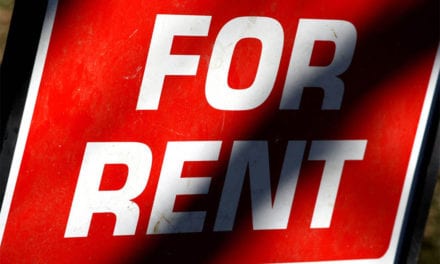The simple answer is, “Yes, but it ain’t easy.”
Your FICO score is a mathematical guestimate of your ability to pay current consumer debt based on your prior payment history. The underpinning of that phrase is “consumer debt”. Consumer debt is the amount owed by individuals when they use credit to purchase goods and services. In other words, consumer debt is what you owe for buying stuff and receiving services.
Credit card debt is what you owe when you use plastic to make a purchase. Mortgage payments repay money borrowed to buy a house. Likewise, an auto loan payment repays money to buy a car or truck. Unlike credit card payments, mortgage payments or car loan payments, your rent payment is not a consumer debt because your payment grants you a right to possess property not purchase the property.
Legally, rent is more like taxes than it is like a mortgage. For the most part, tax and rent payments, are not reported to the credit bureaus. Even late payments are not reported unless you are sued for not paying it them. Being habitually late with your taxes or rent isn’t necessarily a bad thing for your credit score. Conversely, if every month you pay your rent timely, it is not necessarily a good thing credit wise. Since those payment are not reported, future creditors and landlords have no way to determine that you are conscientious.
Good credit is like a job requiring experience. You can’t get a job without experience, but until you get a job you can’t get the experience. To many, credit scores feel the same way. “I can’t improve score until I have good credit. Yet,I can’t get credit until I improve my score. It’s the “riddle, wrapped in a mystery, wrapped up inside and enigma.”
Rent Payment Reporting
Beginning is 2014, some credit reporting agencies started accepting “qualified” rent payment histories from landlords and rent collection companies. By the end of 2016, all three major credit reporting companies, plus upstart VantageScore, used rent payments, when available, to calculate credit scores. However, there are problems.
- You can’t self-report. The credit data collection repositories do not trust you to accurately report your own payments, imagine that.
- Credit information supplied to the data collection repositories must be filed electronically. Most small investors and landlords are simply not equipped to provide payment information in that manner.
- Reporting rent payments can be expensive to both the landlord and the tenant because the credit bureaus usually charge by tenant to accept rental information and calculate credit scores using rental payments. Additionally, credit bureaus charge landlords to accept rent payment histories. To make rent reporting simpler, companies created specifically to accept rental payments for landlords and to report payment histories to the credit bureaus flourish. Unfortunately, the service comes at a cost. Many tenants who want their rent payments reported to the credit bureaus see a monthly rent increase of as much as $50.00. In the end, reporting rent histories is more hassle than what it is worth to most Mom and Pop Landlords who are the ones that tend to rent to tenants with no or bad credit.
What to Do About No or Bad Credit
The Credit Monkey’s experience with rental applications is that more than half have poor or no credit score. To those potential tenants, finding good housing is challenging. Here are my recommendations to lessen the struggle:
- Review the Monkey’s post on what landlords are looking for when it comes to your finances and credit.
- Be forthright. Tell the landlord you have a credit problem up front.
- Keep all rent receipts for the last three years and provide the potential landlord with a copy for each month.
- Provide utility payment histories along with copies for each month’s statement.
- Let your potential landlord know you are willing to pay extra security and/or the last month’s rent. You should know that states like Pennsylvania, where the Credit Monkey resides, limit the amount of upfront rent a landlord can require. Those states generally do not prohibit potential tenants from offering prepayment of rent s as an inducement to lease to a bad credit applicant.
- Offer two letters of recommendation. It takes effort to write a letter. Landlords are impressed by the effort taken to write a letter of recommendation more than by the content of the letter. Know this, an experienced landlord has already heard every sob story ten times over. Yours is just another yarn to him.
- When all else fails, offer to provide rent insurance. Rent insurance costs about one month’s rent per year. With rent Insurance the landlord gets paid even if you don’t pay him. If you have questions about rent insurance email the Monkey for help.
Start fixing your credit today. Be ready for the next time you move. Lease the home you want rather than the one you are forced to accept because of your bad credit.
The Credit Monkey loves comments. If you found this post helpful, please leave a comment, share it on social media or send the Monkey an email at [email protected].






Recent Comments